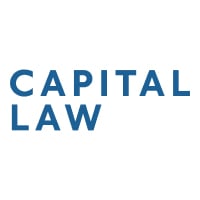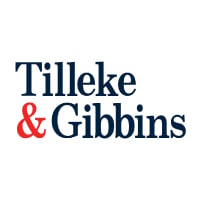

Head of Central Food Group legal | Central Food Retail






Pattinun Phatranawat
Head of Central Food Group legal | Central Food Retail
Team size: 13
What are the most significant cases, projects and/or transactions that you and/or your legal team have recently been involved in?
One of the most significant contributions my legal team and I have made recently is facilitating the company’s expansion into new and challenging business ventures from the outset. As Head of Legal, my role extends beyond traditional compliance and contract review. I actively shape the legal strategy to align with the company’s long-term vision and risk appetite.
From negotiating heads of terms to defining governance structures and dispute resolution mechanisms, my team has played a crucial role in safeguarding the interests of all stakeholders while promoting smooth business operations. Beyond new ventures, we have also been deeply engaged in regulatory compliance matters, particularly in the evolving landscape of trade competition laws and data protection regulations.
This has required proactive risk assessments, implementing compliance frameworks, and training internal stakeholders to mitigate exposure. Ultimately, our approach is not just about resolving legal issues as they arise but about anticipating potential risks, finding strategic solutions, and positioning the company for sustainable growth.
How do you approach managing legal aspects during periods of instability or crisis to ensure the organisation’s resilience?
In the food retail business, everything moves quickly, and customer behaviour evolves rapidly, requiring the legal function to be highly responsive and adaptable. Legal departments are often at the frontline of corporate crisis management, providing strategic direction amid uncertainty. My approach to managing legal aspects during such periods is anchored in three key principles: proactivity, agility, and collaboration.
First, being proactive means anticipating risks before they escalate into crises. My team continuously monitors legal and regulatory developments, ensuring that we have contingency plans in place. For example, during the COVID-19 pandemic, we quickly assessed contract risks, force majeure clauses and labour law implications, helping the company navigate supply chain disruptions and workforce management challenges. Given the fast-moving nature of the food retail industry, where supply chain issues, consumer demand shifts and regulatory changes can impact operations overnight, this proactive approach is essential.
Second, agility is crucial in adapting to rapidly changing circumstances. During a crisis, legal teams must move beyond rigid legal interpretations and focus on pragmatic solutions. Whether renegotiating contracts, handling litigation risks or advising on business continuity strategies, I ensure that legal responses are swift, aligned with commercial realities and enable the business to keep operating efficiently despite external challenges.
Finally, collaboration is key to ensuring organisational resilience. Legal cannot operate in a silo. We work closely with business unit heads, HR, finance and compliance teams to provide clear, actionable legal guidance. This collaborative approach fosters trust, ensures alignment across the organisation, and enables informed decision-making even in high-pressure situations.
By combining these three principles — proactivity, agility, and collaboration — the legal function plays a vital role in protecting the business while also enabling it to adapt and thrive, even in times of instability.
What do you think are the most important attributes for a modern in-house counsel to possess?
The role of in-house counsel has evolved beyond legal advisory functions. Today, it requires a unique blend of skills to support business objectives effectively. I believe the most important attributes for a modern in-house counsel are being a good listener. Understanding the business’s needs is essential.
Legal professionals must engage with stakeholders, grasp commercial objectives and tailor legal strategies accordingly. Continuous learning and adaptability are also vital, as laws and regulations evolve rapidly. Staying updated on legal trends and industry best practices is critical for providing relevant and forward-thinking legal advice. Resilience and problem-solving skills are necessary because legal challenges are inevitable. A strong in-house counsel must remain calm under pressure, find creative solutions and guide the business through complexity. Finally, ethical leadership is essential. As legal advisors, we must uphold the highest ethical standards, ensuring that corporate decisions align with legal and moral responsibilities. Being a role model in ethics fosters trust within the organisation and strengthens corporate integrity.
Based on your experiences in the past year, are there any trends in the legal or business world that you are keeping an eye on that you think other in-house lawyers should be mindful of?
One of the most critical trends that in-house counsel should monitor is ESG compliance. Regulatory bodies worldwide, including in Thailand, are increasingly imposing stricter ESG requirements, affecting corporate governance, sustainability disclosures and compliance obligations. Companies must not only comply with ESG laws but also integrate sustainability into their business strategies to meet investor and consumer expectations. As regulatory scrutiny intensifies, businesses that proactively embed ESG principles into their operations will be better positioned to manage risks and seize emerging opportunities.
Another key area of focus is the evolving regulatory landscape in Thailand, particularly in trade competition and data privacy laws. Regulators are adopting a more stringent approach, and businesses must be prepared for increased oversight and enforcement actions. A significant recent development is the THB 7 million fine imposed by the Personal Data Protection Committee (PDPC) on a tech company for violating the Personal Data Protection Act (PDPA). This case marks a clear shift in the regulator’s approach from primarily educating businesses on compliance to actively enforcing the law and imposing substantial penalties for non-compliance. This signals that organisations must prioritise data protection frameworks, strengthen internal compliance mechanisms and ensure alignment with evolving regulatory expectations.
By staying ahead of these trends, in-house counsel can play a proactive role in shaping corporate strategy and ensuring legal resilience in an increasingly complex business environment. Rather than viewing regulatory changes as mere compliance burdens, legal teams should help businesses navigate these shifts strategically, turning compliance into a competitive advantage.
Head of legal | Central Food Retail Group (CFG)
Head of legal | Central Food Retail